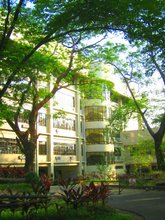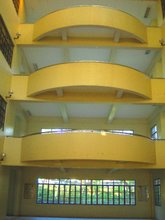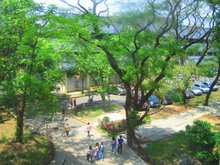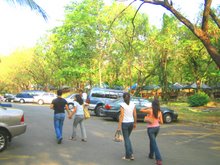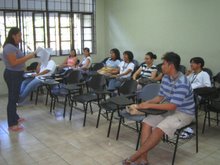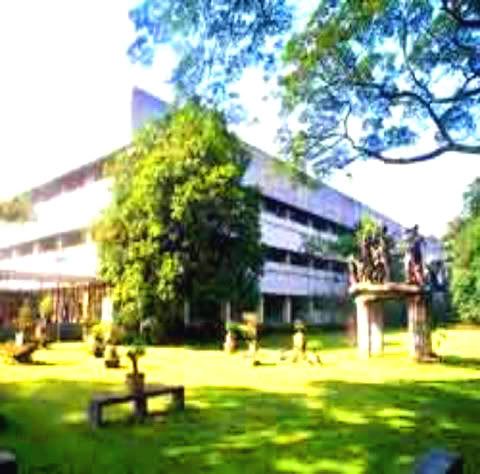misplaced emphasis on english by manuel l. quezon iii
The long view by Manuel L. Quezon III
Philippine Daily Inquirer
MANILA, Philippines -- Tomorrow, a petition is going to be filed with the Supreme Court by a group of concerned groups and individuals, among them the most glittering names in Philippine arts and letters -- ranging from critic Isagani R. Cruz and national artist Bienvenido Lumbera, to Romulo Baquiran Jr. and Nicanor Tiongson, to educators Patricia Licuanan and sociologist Randy David. The petitioners also include minors, represented by their parents. The petition is asking the Court to issue a restraining order to stop the President of the Philippines from further implementing Executive Order 210, series of 2003.
Signed on May 17, 2003, the EO has as its fairly non-controversial purpose, “Establishing the Policy to Strengthen English as a Second Language in the Educational System.” The petition says the five main points of the EO are: (a) English should be taught as a second language at all levels of the educational system, starting with the First Grade; (b) English should be used as the medium of instruction for English, Mathematics, and Science from at least the Third Grade Level; (c) English shall be used as a primary medium of instruction in all public institutions of learning at the secondary level; (d) As the primary medium of instruction, the percentage of time allotment for learning areas conducted in the English language in high school is expected to be not less than 70 percent of the total time allotment for all learning areas; and (e) The Filipino language shall continue to be the medium of instruction in the learning areas of Filipino and Araling Panlipunan.
On Aug. 22, 2006, the secretary of education implemented EO 210 by promulgating Memorandum Order No. 36, Series of 2006. The MO provides for the following: (a) English shall be taught as a second language starting with Grade I; (b) As provided for in the 2002 Basic Education Curriculum, English shall be used as the medium of instruction for English, Mathematics and Science and Health starting Grade III; and (c) The English language shall be used as the primary medium of instruction in all public and private schools in the secondary level, including those established as laboratory and/or experimental schools, and vocational and technical institutions. As the primary medium of instruction, the percentage of time allotment for learning areas conducted in the English language should not be less than 70 percent of the total time allotment for all learning areas in all year levels.
Both the President’s order and the subsequent Department of Education instructions, according to the petitioners, are objectionable on many grounds. Among the main objections is that the order is deceptive, claiming, as policy, strengthening English as a second language—but actually it establishes English as the primary language of instruction from the secondary level up. This goes against the Constitution.
Article XIV, Sec. 6, which established Filipino as the national language, also includes the following policy: “Subject to provisions of law and as the Congress may deem appropriate, the Government shall take steps to initiate and sustain the use of Filipino as a medium of official communication and as language of instruction in the educational system.” Sec. 7 of the same Article says, “For the purpose of communication and instruction, the official languages of the Philippines are Filipino and, until otherwise provided by law, English.” Furthermore, “The regional languages are the auxiliary official languages in the regions and shall serve as auxiliary media of instruction therein.”
Granted that the President’s intentions are motivated by a concern to keep Filipinos competitive and to make them better-educated, still, whatever reforms she undertakes must be compatible with the Constitution. Secondly, reforms should be reforms, not a reactionary attempt to simply decree an English-speaking campaign.
Licuanan, speaking earlier this year, explained why the President’s policy is not only unconstitutional, but counterproductive: “The use of English as medium of instruction will not improve the quality of English in the country nor will it present the opportunities for intellectual and economic advancement as claimed. The ones who benefit most from education in English are those who have high levels of proficiency in English to start with and those who belong to environments where English language inputs, materials and resources are available. The overwhelming majority of Filipinos will forever struggle with English as a foreign language and will feel alienated in the classroom where they are required to speak in English. They are likely to learn very little and enjoy the so-called learning process even less. They will fail examinations and eventually drop out. The use of English as medium of instruction in our schools may also explain the lapse into illiteracy among school dropouts who were taught to be literate in English through rote memorization. English, therefore, is not the solution to poverty in the country but may actually be part of the cause of poverty.”
By what means, then will a student learn best? The petitioners say, by using languages closer to home: that is, first of all, the local language of a child, and then, the national language of the country. As Juan Miguel Luz wrote in this paper, “The key to better English is better implementation; more teacher training in grammar, composition, vocabulary; more mechanisms to expand English usage in schools such as campus journalism, campus radio, assigned days for English and Filipino communication and the like, more bilingual reading books and elocution contests and spelling bees (both in English and Filipino).” The key to better science and math skills is to teach them in the native tongues.
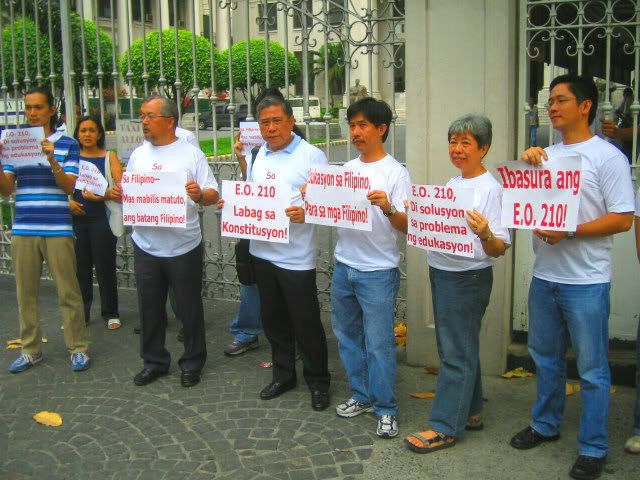
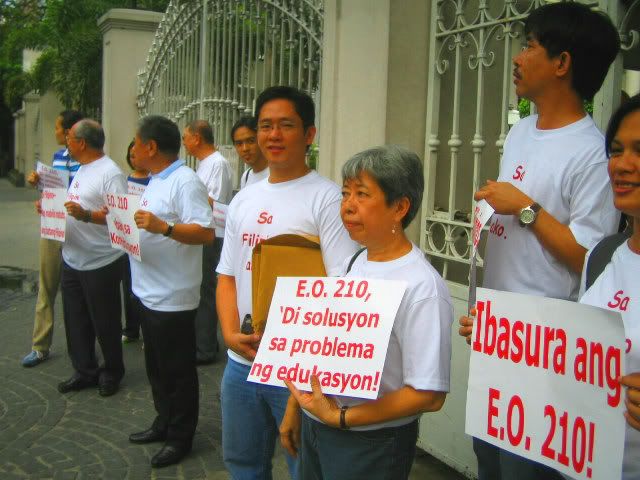
Filipino writers, scholars and teachers led by National Artist for Literature Virgilio S. Almario, prizewinning writers Isagani R. Cruz, Roberto Anonuevo, Efren Abueg, and Romulo Baquiran Jr., UP Diliman Sentro ng Wika Director Galileo Zafra, former UP Integrated School Principal Ma. Theresa L. de Villa, and UP Department of Filipino and Philippine Literatures Chair Vina Paz gather outside the Supreme Court, Manila, 27 April 2007



